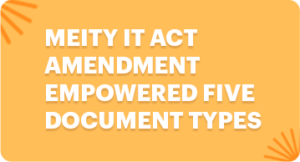Get the US Payroll Tax Guide: Alaska to Master Withholding & Filing
Understanding US Payroll Taxes in Alaska
The world of payroll taxes can be complicated and knowing the laws and regulations for each state is essential to ensuring that your business is compliant. This guide covers important information about payroll taxes in Alaska.
We’ll walk you through Alaska’s withholding requirements, payroll tax rates, and local Alaska payroll taxes. You’ll also learn strategies for reducing payroll tax liability, how to automate your payroll tax processes, employee benefit guides, and more.
Alaska’s Payroll Withholding Requirements
The government requires employers to withhold certain taxes from their employees’ wages. This includes federal taxes (such as Social Security and Medicare), Alaska income taxes, and any other taxes required by a city, county, or municipality.
Payroll Tax Rates
In Alaska, employers must pay payroll taxes at rates established by the state. These taxes are used to fund Social Security, Medicare, and other state and federal programs. Employers may be eligible for certain exemptions, depending on their situation.
Alaskan Unemployment Insurance Tax
Alaska requires employers to pay unemployment insurance taxes to the state. The rate depends on the employer’s history of layoffs and firings. The state also requires employers to provide educational materials about the unemployment benefit program to their employees. Recently, the state updated its regulations regarding job search requirements for unemployment benefits.
Social Security Contributions & Medicare in Alaska
Employers in Alaska must contribute to Social Security and Medicare on behalf of their employees. Both employers and employees must pay Social Security contributions, while the employer shoulders the compliance of the Medicare payment.
Alaska’s Payroll Withholding Requirements
Employers in Alaska are required to withhold a portion of their employees’ wages as payroll taxes. These taxes go towards funding the state government, as well as paying for certain benefits for employees. What kind of taxes you’ll owe depends on several factors, including the amount of income an employee earns and what type of job they are working.
Taxes that an employers must withhold from employee wages include federal income tax, Social Security tax, and Medicare tax. In addition, employers may also be required to withhold additional state taxes for their employees, such as Alaska state income tax, state unemployment tax, and local taxes.
The amount of taxes withheld from an employee’s wages must be reported on a quarterly basis to the Alaska Department of Revenue, Employment Security Division. Employers are also responsible for filing any necessary additional paperwork to report the taxes withheld.
Payroll Tax Rates in Alaska
Alaska has specific payroll tax rates for employers within the state. Employers must withhold taxes from employees’ wages, including Social Security and Medicare taxes. In addition, employers are obligated to pay taxes on behalf of their employees. The current rate for Social Security is 6.2% and the rate for Medicare taxes is 1.45%.
Employers may be eligible to receive exemptions from payroll tax liability. Tax exemptions include those for certain types of businesses or organizations, such as non-profits, governmental entities, or religious organizations. Employers must contact the Alaska Department of Labor and Workforce Development for more information about exemptions.
Understanding Alaskan Unemployment Insurance Tax
Employers in Alaska must be aware of the educational requirements and obligations related to unemployment insurance, as well as any recent updates to the regulations. It is important that employers comply with all governing laws and regulations, as failure to do so could result in significant financial penalties.
To begin, employers in Alaska are required to notify employees of their rights and responsibilities under the Alaska Employment Security Act within five days of the employee’s start date. Employers are also required to register with the Alaska Department of Labor and Workforce Development for contributions to the unemployment insurance fund. Contributions made by employers are then used to provide unemployment insurance benefits to current and former employees who meet necessary qualifications.
In addition, employers are required to file periodic reports detailing the wages paid to employees and the taxes withheld. These reports must be filed quarterly with the Alaska Department of Labor and Workforce Development. Further, employers may be subject to audits or investigations by the state to ensure compliance with payroll tax regulations.
It is important to note that employers are required to pay certain penalties for late or incomplete filings or payments, such as a 15% penalty for late filings and a 10% penalty for late payments. Furthermore, the state has recently implemented an online system for filing payroll taxes, which simplifies the process for employers.
Social Security Contributions & Medicare in Alaska
In Alaska, employers must make Social Security contributions as part of their payroll taxes. Social Security contributions are based on each employee’s wages and can be calculated by following the table provided by the federal government for each state. Additionally, employers should also be aware of the applicable Medicare fees based on their employee’s wages.
Social Security contributions are an important part of Alaska’s payroll tax system as they help to provide benefits such as retirement income, disability payments, and survivor benefits for a worker’s family if they pass away.
It is the responsibility of the employer to withhold and remit the appropriate amount of Social Security and Medicare taxes for each employee. The employer’s contribution is matched by the employee’s contribution and is taken out of their paycheck before the wages are paid.
Local Alaska Payroll Taxes
In addition to the state payroll taxes applicable in Alaska, there are also several local payroll taxes imposed by the cities and other municipalities. These taxes may include income, sales, use, or other taxes related to operating a business. In addition, some employers may be subject to miscellaneous payroll taxes for particular services or programs.
For example, employers may be required to pay occupational taxes related to their employees’ safety or benefit programs, such as workers’ compensation insurance. Employers must also pay taxes on employee wages that are paid out to independent contractors and subcontractors.
Employers in Alaska should check with the local authorities for any additional taxes that may apply to their particular situation. It is important to be up to date on all of the applicable payroll taxes in order to avoid any costly penalties for non-compliance.
Employer Obligations and Penalties for Non-Compliance
If an employer fails to meet Alaska’s payroll tax requirements, they could be subject to penalties and other consequences. It is important for employers to understand the obligations and regulations of payroll taxes in the state, to prevent any unexpected charges or fees.
The Alaska Department of Revenue (DOR) typically assesses a penalty of 5% of the tax due if the amount has not been paid within 45 days of the due date. The DOR also reserves the right to issue additional penalties such as late filing fees, interest on overdue tax payments, and dishonored check fees. In some cases, the DOR may even proceed with criminal prosecution for failure to pay payroll taxes.
To avoid any of these penalties, employers must stay informed about current regulations and ensure that they are paying their payroll taxes on time. Many employers opt to automate their payroll tax processes, to avoid any manual input errors or delays.
Tax Filing in Alaska
Filing taxes in Alaska can be pretty straightforward for employers, but there are important deadlines and requirements to keep in mind. Payroll taxes must be filed on a quarterly basis in Alaska, with returns due by the last day of the month following the quarter end date. For example, taxes for the first quarter (January-March) are due by the last day of April.
For each filing, employers must submit a Form 941 to the Alaska Department of Labor and Workforce Development. This form is the same as the federal form for employers who are reporting wages, tips, and other compensation subject to withholding.
When filing, employers must also include a record of all payments they’ve made throughout the quarter. Detailed records of all employee payments should be provided, including each employee’s full name, Social Security number, and the amount paid for each job and period.
Accurate filing of payroll taxes is essential for employers to avoid unnecessary penalties. Employers must provide an accurate and timely filing of tax returns, along with applicable receipts for employees. If there is a discrepancy between the filing and the payment of taxes, employers will be liable for any underpayment plus interest and any applicable late-filing penalties.
Employee Guides for Understanding Their Payroll Tax Benefits
Employees can often feel overwhelmed by the complexities of payroll taxes. Fortunately, there are many organizations that offer employees assistance and advice to understand their payroll taxes. These benefits can include education materials, resources, and support from tax experts.
In Alaska, employees can take advantage of services like the Taxpayer Education Program, which provides free resources and educational materials on payroll taxes. They can also contact the Alaska Department of Revenue for more information about their rights and responsibilities.
Additionally, employees may be eligible for certain deductions which can reduce their taxable income and lower their financial burden. For example, they may be able to claim dependent care credits or the Earned Income Tax Credit (EITC). Other deductions may also be available depending on their specific situation.
Employees should research the deductions that are applicable to them and speak with a qualified tax expert to ensure they are making the most of their benefits.
Strategies for Reducing Payroll Tax Liability
If you’re an employer in Alaska, it’s important to stay up-to-date on all payroll tax obligations so that your business can remain compliant and protect your assets. One of the best ways to ensure that your business remains compliant is by taking steps to reduce your payroll tax liability. Here are some strategies that employers in Alaska can use to reduce their payroll tax liability:
- Consider outsourcing payroll administration services – Outsourcing these services to a qualified third-party provider can help reduce compliance headaches and free up time for other tasks.
- Claim applicable credits – Depending on your company’s size, location, and other factors, you may be eligible for certain credits that can help reduce your payroll tax liability.
- Review state and local tax laws regularly – Make sure you are staying up-to-date on changes to federal, state, and local tax laws that may affect your payroll taxes.
- Ensure accurate filing of taxes – Double-check and re-check your filings to make sure you don’t miss any deadlines or calculations.
- Properly classify your employees – Properly classifying employees as contractors or employees can help reduce payroll tax liability.
By utilizing these strategies and taking advantage of credits when available, you can help reduce your payroll tax liability and ensure that your business remains in compliance with relevant tax laws.
Automating Your Payroll Tax Process
Technology can be used to make payroll tax processes easier and more efficient for employers. Automating your payroll tax process can help you save time, reduce errors, and simplify the filing process.
By using a payroll software, you can automate parts of your payroll taxes, such as calculating withholdings, paying employees accurately, and filing tax returns on time. With these automated processes, you can better manage your payroll taxes and ensure that you’re compliant with state and federal regulations.
Take advantage of cloud-based payroll software which allows you to access your payroll data and records securely from anywhere. This also helps you stay up-to-date on tax regulations, as the software will be automatically updated with new laws and rates. Additionally, some software offers features such as tax payment reminders and automatic filing of required forms.
Automating your payroll tax process can save your business time, money, and headaches. Implementing the right payroll software can help you simplify your payroll process and allow you to focus on running your business.
Understanding Your Payroll Tax Obligations in Alaska
Alaska employers are obligated to withhold federal and state payroll taxes from their employees’ wages, and pay certain amounts of those taxes on behalf of their employees. In this guide, we will provide an overview of the payroll tax requirements for businesses located in Alaska, including the applicable rates, filing requirements, and strategies that employers can use to minimize their liabilities.
Alaska’s Payroll Withholding Requirements
Under Alaska state law, employers must withhold state income taxes from the wages paid to their employees. The rate of withholding depends on the employee’s earnings per pay period and is set forth in the Alaska Income Tax Withholding Tables. Employers must also pay Alaska’s payroll tax contributions, which are similar to Social Security and Medicare taxes for employees.
Payroll Tax Rates
The Alaska income tax rate for individuals ranges from 0% to 6%. The Alaska Unemployment Insurance Tax (UI) rate ranges from 0.9% to 6.75%, depending on the employer’s experience rating. The employer portion of Social Security and Medicare taxes is 6.2% and 1.45%, respectively.
Alaskan Unemployment Insurance Tax
Employers are required to pay contributions to cover the cost of unemployment insurance benefits for their employees. Additionally, employers are required to register with the Alaska Department of Labor and Workforce Development, complete an educational course, and submit reports on wages paid and taxes collected. It is important to note that recent changes in the law have increased the maximum UI tax rate as of 2020.
Social Security Contributions & Medicare in Alaska
Employers in Alaska are subject to both Social Security and Medicare taxes. Employers must make Social Security tax contributions on the wages they pay to their employees. The employer’s contribution rate is 6.2% of the employee’s wages. Employers must also pay a contribution of 1.45% of each employee’s wages for Medicare taxes.
Local Alaska Payroll Taxes
Businesses operating in Alaska may be subject to local payroll taxes, such as city taxes. Additionally, other miscellaneous payroll taxes may be applicable based on the location and activities of the business. It is important to understand the local tax obligations and check for any updates or changes in the law.
Employer Obligations and Penalties for Non-Compliance
Alaska employers are obligated to comply with all relevant tax laws and regulations or risk penalties and other consequences. The Alaska Department of Revenue is responsible for auditing businesses to ensure their compliance with tax laws, and employers that fail to comply may face significant penalties, including fines or even criminal charges.
Tax Filing in Alaska
When filing taxes in Alaska, employers must submit a Form 941, Employer’s Quarterly Federal Tax Return, to the Internal Revenue Service (IRS). Employers must also submit Form DE-8, Employer’s Quarterly Alaska Withholding Tax Return, to the Alaska Department of Revenue. Forms must be filed by the respective deadlines and receipts should be provided upon request.
Employee Guides for Understanding Their Payroll Tax Benefits
Employees should be aware of the benefits they receive from their employers’ payroll taxes. Employees may be eligible for certain deductions, credits, and other benefits associated with their employer’s payroll taxes. Companies and organizations may also provide assistance to employees in understanding their payroll tax benefits.
Strategies for Reducing Payroll Tax Liability
Employers may choose to utilize certain strategies to reduce their payroll tax liability. For example, employers may implement wage reduction strategies or establish Employee Stock Ownership Plans (ESOPs). Additionally, employers may make use of certain deductions and credits to limit their tax liability.
Automating Your Payroll Tax Process
Utilizing technology to automate the payroll tax process can save time and money. Automation tools can track employee wages, calculate tax withholdings, generate filings, and generate reports. Automation can also ensure accuracy and consistency across multiple locations and simplify payroll processing.
Conclusion
In conclusion, businesses in Alaska must
FAQs for US Payroll Taxes and Alaska
1. What are the laws regulating payroll withholding taxes in Alaska?
Alaska’s Department of Labor and Workforce Development regulates all payroll withholding taxes within the state. Employers and employees are typically responsible for withholding taxes, filing documents and making payments.
2. What are the payroll tax rates in Alaska?
Alaska does not levy state income tax on individuals or corporations, but does have employer payroll tax rates of up to 6% for the Alaska Income Tax (AIT). There also may be local payroll taxes, depending on where the business is located.
3. What are Alaskan employers obligated to for unemployment insurance tax?
Employers in Alaska are obligated to pay contributions into the state’s unemployment insurance system based on established educational requirements. In addition, employers must follow any recent updates to the regulations.
4. What Social Security contributions must employers make in Alaska?
Employers in Alaska are required to contribute to Social Security, as well as Medicare fees, based on their employees’ wages.
5. What penalty risks do employers face for not complying with payroll taxes in Alaska?
Penalties are in place in Alaska to discourage employers from non-compliance and avoidance of payroll taxes. These penalties may include fines, jail time, or both.
6. What strategies can employers utilize to reduce their payroll tax liability?
Employers can implement a number of strategies to reduce their payroll tax liability, such as utilizing automated payroll tax processes, taking advantage of exemptions for certain types of employees, and pursuing deductions.
7. Is there any help available to employees to understand their payroll tax benefits?
Employees in Alaska may receive assistance from their employers in understanding their payroll tax benefits. In addition, assistance is also available from various companies and organizations that specialize in payroll tax services.





